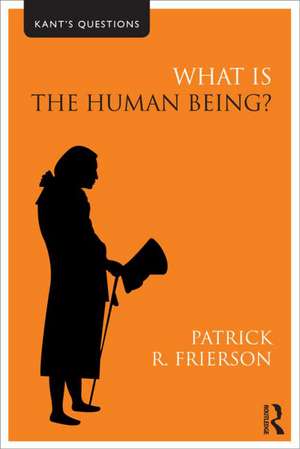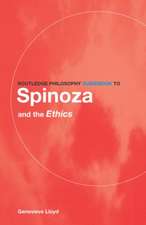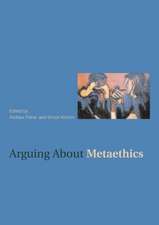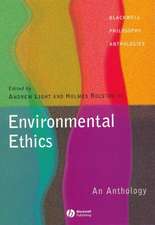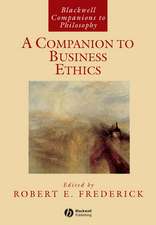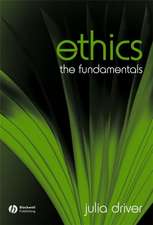What is the Human Being?: Kant's Questions
Autor Patrick R. Friersonen Limba Engleză Paperback – 12 feb 2013
He begins by explaining how Kant articulates three ways of addressing the question ‘what is the human being?’: the transcendental, the empirical, and the pragmatic. He then considers some of the great theorists of human nature who wrestle with Kant’s views, such as Hegel, Marx, Darwin, Nietzsche, and Freud; contemporary thinkers such as E.O.Wilson and Daniel Dennett, who have sought biological explanations of human nature; Thomas Kuhn, Michel Foucault, and Clifford Geertz, who emphasize the diversity of human beings in different times and places; and existentialist philosophers such as Sartre and Heidegger.
He argues that whilst these approaches challenge and enrich Kant’s views in significant ways, all suffer from serious weaknesses that Kant’s anthropology can address. Taking a core insight of Kant’s - that human beings are fundamentally free but finite - he argues that it is the existentialists, particularly Sartre, who are the most direct heirs of his transcendental anthropology.
The final part of the book is an extremely helpful overview of the work of contemporary philosophers, particularly Christine Korsgaard and Jürgen Habermas. Patrick R. Frierson explains how these philosophers engage with questions of naturalism, historicism, and existentialism while developing Kantian conceptions of the human being.
Including chapter summaries and annotated further reading, What is the Human Being? is an outstanding introduction to some fundamental aspects of Kant’s thought and a judicious assessment of leading theories of human nature. It is essential reading for all students of Kant and the philosophy of human nature, as well as those in related disciplines such as anthropology, politics and sociology.
| Toate formatele și edițiile | Preț | Express |
|---|---|---|
| Paperback (1) | 392.54 lei 6-8 săpt. | |
| Taylor & Francis – 12 feb 2013 | 392.54 lei 6-8 săpt. | |
| Hardback (1) | 1011.64 lei 6-8 săpt. | |
| Taylor & Francis – 18 feb 2013 | 1011.64 lei 6-8 săpt. |
Preț: 392.54 lei
Nou
Puncte Express: 589
Preț estimativ în valută:
75.11€ • 78.84$ • 62.34£
75.11€ • 78.84$ • 62.34£
Carte tipărită la comandă
Livrare economică 11-25 aprilie
Preluare comenzi: 021 569.72.76
Specificații
ISBN-13: 9780415558457
ISBN-10: 041555845X
Pagini: 336
Dimensiuni: 156 x 234 x 20 mm
Greutate: 0.52 kg
Ediția:1
Editura: Taylor & Francis
Colecția Routledge
Seria Kant's Questions
Locul publicării:Oxford, United Kingdom
ISBN-10: 041555845X
Pagini: 336
Dimensiuni: 156 x 234 x 20 mm
Greutate: 0.52 kg
Ediția:1
Editura: Taylor & Francis
Colecția Routledge
Seria Kant's Questions
Locul publicării:Oxford, United Kingdom
Public țintă
Postgraduate and UndergraduateCuprins
Introduction Part 1: Kant on the Human Being 1. Kant’s Transcendental Anthropology 2. Kant’s Empirical Anthropology 3. Human Evil and Human History 4. Human Diversity 5. Kant’s Pragmatic Anthropology Part 2: From Kant to the Twentieth Century 6. Hegel, Marx, Darwin, Nietzsche, and Freud Part 3: What is the Human Being Today? 7. Scientific Naturalism 8. Historicism and Diversity 9. Existentialism 10. Normativity Conclusion. Index
Recenzii
"This is the introduction to Kant’s anthropology that no serious student of Kant should miss. Frierson also offers a remarkably fresh take on the question of his ongoing relevance on a variety of contemporary philosophic and political debates, from socio-biology to the problem of human evil. Highly recommended." - Susan Shell, Boston College, USA
"The most philosophically engaging account of Kant's theory of human nature that I have read. Its chief virtue is its successful attempt to engage Kant's anthropology in dialogue with a variety of competing post-Kantian theories of human nature in a way that is neither depressingly dogmatic nor bluntly dismissive." - Robert Louden, University of Southern Maine, USA
"Anyone committed to developing an authentically Kantian conception of human being as a viable position in contemporary debates, or merely interested in the issue of human being from a Kantian perspective, will find this to be an indispensable source." - Robert Burch, University of Alberta, Canada
"An impressively thorough and up to date discussion of Kant's wide-ranging philosophical anthropology - a field that overlaps with key issues concerning science, psychology, history, ethics, and religion. Recent years have seen an explosion of interesting work on this topic, but perhaps no one has covered as much of the field as usefully as Frierson has here." - Karl Ameriks, University of Notre Dame, USA
"This is the introduction to Kant’s anthropology that no serious student of Kant should miss. Frierson also offers a remarkably fresh take on the question of his ongoing relevance on a variety of contemporary philosophic and political debates, from socio-biology to the problem of human evil. Highly recommended." - Susan Shell, Boston College, USA
"The most philosophically engaging account of Kant's theory of human nature that I have read. Its chief virtue is its successful attempt to engage Kant's anthropology in dialogue with a variety of competing post-Kantian theories of human nature in a way that is neither depressingly dogmatic nor bluntly dismissive." - Robert Louden, University of Southern Maine, USA
"Anyone committed to developing an authentically Kantian conception of human being as a viable position in contemporary debates, or merely interested in the issue of human being from a Kantian perspective, will find this to be an indispensable source." - Robert Burch, University of Alberta, Canada
"An impressively thorough and up to date discussion of Kant's wide-ranging philosophical anthropology - a field that overlaps with key issues concerning science, psychology, history, ethics, and religion. Recent years have seen an explosion of interesting work on this topic, but perhaps no one has covered as much of the field as usefully as Frierson has here." - Karl Ameriks, University of Notre Dame, USA
"In this excellent introduction to Kant, Frierson (Whitman College) distills the profound complexity of Kantian philosophy into a remarkably accessible, concise, and well-argued contribution to the Routledge "Kant's Questions" series. Frierson's ability to simplify Kantian philosophy, without sacrificing philosophical rigor, makes for one of the best available contemporary introductions to Kant. Summing Up: Essential." - L.A Wilkinson, University of Tennessee at Chattanooga, USA in Choice
"This is a bold book that wears its considerable scholarship lightly. Frierson artfully builds on the extensive recent work done by scholars all over the world on Kant’s anthropology, and he extends it into new territory by bringing it into constructive contact with contemporary discussions of human nature." -Robert B. Louden, University of Southern Maine
"Frierson's book attempts do many things, and it does…them very well…the general reading public interested in the history of ideas will find the entire volume to contain engaging, lucid, and wide-ranging discussions of diverse perspectives on the human condition."-Tim Jankowiak, Towson University, USA in Notre Dame Philosophical Reviews
"The most philosophically engaging account of Kant's theory of human nature that I have read. Its chief virtue is its successful attempt to engage Kant's anthropology in dialogue with a variety of competing post-Kantian theories of human nature in a way that is neither depressingly dogmatic nor bluntly dismissive." - Robert Louden, University of Southern Maine, USA
"Anyone committed to developing an authentically Kantian conception of human being as a viable position in contemporary debates, or merely interested in the issue of human being from a Kantian perspective, will find this to be an indispensable source." - Robert Burch, University of Alberta, Canada
"An impressively thorough and up to date discussion of Kant's wide-ranging philosophical anthropology - a field that overlaps with key issues concerning science, psychology, history, ethics, and religion. Recent years have seen an explosion of interesting work on this topic, but perhaps no one has covered as much of the field as usefully as Frierson has here." - Karl Ameriks, University of Notre Dame, USA
"This is the introduction to Kant’s anthropology that no serious student of Kant should miss. Frierson also offers a remarkably fresh take on the question of his ongoing relevance on a variety of contemporary philosophic and political debates, from socio-biology to the problem of human evil. Highly recommended." - Susan Shell, Boston College, USA
"The most philosophically engaging account of Kant's theory of human nature that I have read. Its chief virtue is its successful attempt to engage Kant's anthropology in dialogue with a variety of competing post-Kantian theories of human nature in a way that is neither depressingly dogmatic nor bluntly dismissive." - Robert Louden, University of Southern Maine, USA
"Anyone committed to developing an authentically Kantian conception of human being as a viable position in contemporary debates, or merely interested in the issue of human being from a Kantian perspective, will find this to be an indispensable source." - Robert Burch, University of Alberta, Canada
"An impressively thorough and up to date discussion of Kant's wide-ranging philosophical anthropology - a field that overlaps with key issues concerning science, psychology, history, ethics, and religion. Recent years have seen an explosion of interesting work on this topic, but perhaps no one has covered as much of the field as usefully as Frierson has here." - Karl Ameriks, University of Notre Dame, USA
"In this excellent introduction to Kant, Frierson (Whitman College) distills the profound complexity of Kantian philosophy into a remarkably accessible, concise, and well-argued contribution to the Routledge "Kant's Questions" series. Frierson's ability to simplify Kantian philosophy, without sacrificing philosophical rigor, makes for one of the best available contemporary introductions to Kant. Summing Up: Essential." - L.A Wilkinson, University of Tennessee at Chattanooga, USA in Choice
"This is a bold book that wears its considerable scholarship lightly. Frierson artfully builds on the extensive recent work done by scholars all over the world on Kant’s anthropology, and he extends it into new territory by bringing it into constructive contact with contemporary discussions of human nature." -Robert B. Louden, University of Southern Maine
"Frierson's book attempts do many things, and it does…them very well…the general reading public interested in the history of ideas will find the entire volume to contain engaging, lucid, and wide-ranging discussions of diverse perspectives on the human condition."-Tim Jankowiak, Towson University, USA in Notre Dame Philosophical Reviews
Descriere
Philosophers, anthropologists and biologists have long puzzled over the question of human nature. In this lucid and wide-ranging introduction to Kant’s philosophy of human nature – which is essential for understanding his thought as a whole - Patrick Frierson assesses Kant’s theories and examines his critics.
